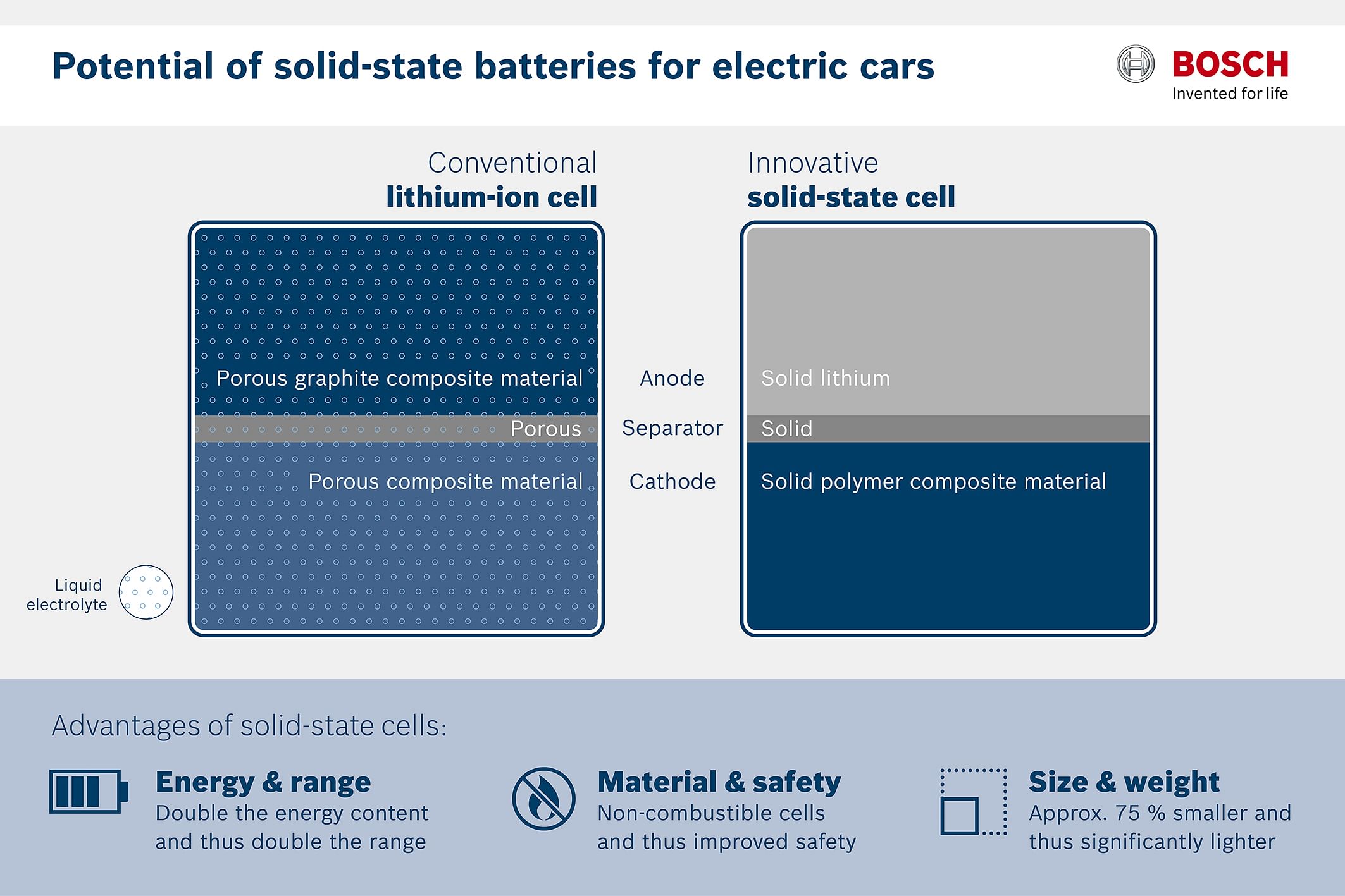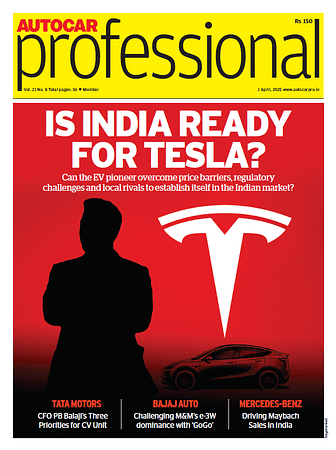Bosch to debut groundbreaking battery tech for EVs
Pure lithium anodes are an innovative leap in cell construction and solid-state cells offer more than twice the range possible.
Bosch is debuting a new battery technology for electric cars that could be production-ready in as little as five years.
“Bosch is using its knowledge and considerable financial resources to achieve a breakthrough for electromobility,” said Dr Volkmar Denner, the chairman of the board of management of Robert Bosch GmbH. The acquisition of the U.S. start-up Seeo Inc (Hayward, CA near the Silicon Valley) will help make this possible. In addition to its own development in the area of battery technology, Bosch now has crucial know-how in innovative solid-state cells for lithium batteries as well as exclusive patents. “Solid-state cells could be a breakthrough technology,” Dr Denner said. “Disruptive start-up technology is meeting the broad systems knowledge and financial resources of a multinational company.”
Up to now, the declared industry target has been to double batteries’ energy density and halve their costs by the end of this decade. With the new solid-state cells, Bosch sees the potential to more than double energy density by 2020, and at the same time reduce the costs considerably further. A comparable electric car that has a driving range today of 150 kilometres would be able to travel more than 300 kilometres without recharging – and at a lower cost.

Strategic expansion of battery research
The acquisition of Seeo Inc fits seamlessly into Bosch’s electromobility strategy. The German supplier already offers a wide range of components for electromobility, from motors and power electronics to batteries. So far, the company has realised 30 production projects related to electromobility. At the same time, engineers are working on further refining the technology, and in doing so, making electromobility a more practical proposition. After all, by 2025, the company forecasts that roughly 15 percent of all new cars built worldwide to have at least a hybrid powertrain. In Europe, more than a third of all new cars will be electrically powered – the majority as plug-in hybrids. To this end, in 2014 Bosch joined GS Yuasa and Mitsubishi Corporation in establishing the joint venture Lithium Energy and Power GmbH & Co. KG, whose objective is to develop a more powerful generation of lithium-ion batteries. Seeo Inc.’s technology complements the work done thus far with Bosch’s Japanese partners. The result will be a combination of groundbreaking start-up technology with Bosch’s systems and technology know-how, GS Yuasa’s cell competence, and Mitsubishi Corporation’s broad industrial base.
First samples
For years, automakers and suppliers have been trying to create more powerful batteries. Cells are an important building block – the battery of an electric car consists of numerous interconnected cells. Cells are thus a substantial part of the value-added. The performance of an energy storage device can be improved with various methods. For example, in cell chemistry, the material that the positive and negative poles (cathode and anode) are made of plays a major role. In current lithium-ion batteries, one of the reasons energy capacity is limited is because the anode consists to a large degree of graphite. Using solid-state technology, Bosch says it can manufacture the anode out of pure lithium, which considerably increases storage capacity. In addition, the new cells function without ionic liquid, which means they are not flammable. “The pure lithium anode represents a huge innovative leap in battery cell construction,” Dr Denner said. Thanks to its acquisition of Seeo Inc, Bosch now possesses the first sample cells which have the potential to meet the high standards of the automotive industry where durability and safety are concerned.
RELATED ARTICLES
Aisin to produce hybrid motor for Mitsubishi in Thailand
The hybrid drive motor and gearbox, will be produced at Aisin Powertrain (Thailand) Co for use in the Mitsubishi XForce ...
GM reports strong Q1 sales in China, demand for EVs and hybrids surges 53%
General Motors and its joint ventures in China have sold more than 442,000 units between January and March 2025.
Volkswagen to invest $580 million in Argentina, plots new pick-up truck for South America
Volkswagen is paving the way for the next generation of mid-size pick-up truck as a successor to the Amarok. The new mod...






 By Autocar Professional Bureau
By Autocar Professional Bureau
 15 Sep 2015
15 Sep 2015
 4489 Views
4489 Views












